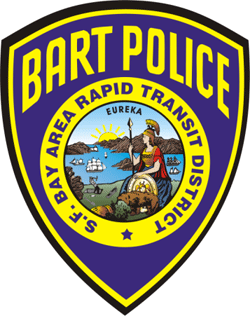Legislation currently before California Governor Jerry Brown would allow Bay Area Rapid Transit (BART) to ban passengers who have been convicted of a crime committed while on BART property. Written into a renewal of legislation for existing transit rules in the Sacramento area, the bill being considered by Governor Brown, AB 716, would make it an infraction to return to BART stations or use the regional transit system for up to one year.
“BART seeks whatever legal solutions we can to keep our passengers safe. There are dangerous people who are attracted to these public places. For example, we had a stabbing at the gates of Balboa station on the 8th of September,” BART spokesperson Luna Salaver told the Guardian. “This is something that BART can use as a tool.”
BART denied any connection between the wave of recent protests and the addition of BART to the bill renewal of AB 716. The BART Board of Directors began pursuing their inclusion into the legislation this spring, and addressed the issue at its June 9 board meeting — before frequent protests began over the July 3 shooting death of Charles Hill by BART police at Civic Center Station.
However, if passed, the resulting ordinance could be applied to protesters, some of whom have been arrested during civil disobedience that has caused rush hour service disruptions of BART’s operations, and others who have been arrested in official free speech areas while not directly contributing to a disruption in service.
With some 350,000 people passing through turnstiles each weekday, BART does not believe it can easily prevent everyone who is cited from re-entering BART, but says it will serve as an additional tool if a person is re-encountered by BART police. While a fine of $75 on the first offense may not be enough on its own to act as a deterrent, infractions to the law could be examined as probation or parole violations and subsequent infractions carry heavier fines.
“It would be preferable if these types of conditions were set by a judge as a condition of probation,” said Michael Rifher, staff attorney ACLU of Northern California. “These types of ordinances imposing ‘stay away’ orders without judicial oversight are an area that is very open to abuse.”
Specifics on how the new law would be enforced are not in place yet, and will be developed by BART if the bill receives Gov. Brown’s signature.
“If the bill passes the Governor’s desk, BART will still have to go through its own process to implement it as an ordinance,” said Salaver. “This is something BART can uses as a tool but it will not likely be invoked automatically.”
Rifher says the underlying legislation does go further to protect free speech and the rights of the disabled than many examples of “stay away” legislation. For example, according to the text of the legislation, someone banned from riding BART or entering the station would still be allowed to “engage in activities that are protected under the laws of the United States or of California, including, but not limited to, picketing, demonstrating, or distributing handbills.”
In discussing the process of implementing an ordinance, BART said it would invite people from the disabled community, who may have special concerns about the formation of BART’s policy, to participate.
Sources familiar with the bill say it is unclear whether Governor Brown plans to sign the legislation.

